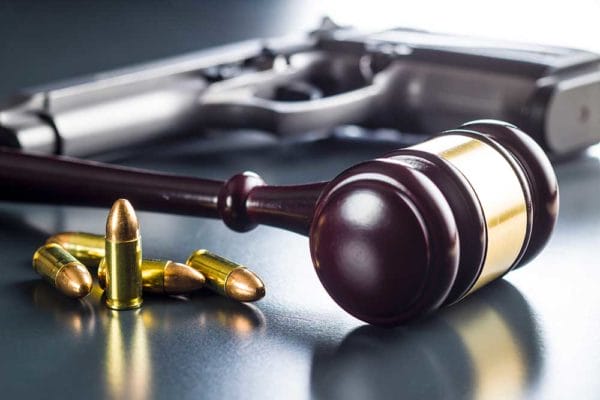
U.S.A. – -(Ammoland.com)- A man who was involuntarily committed to a mental institution as an adolescent, but who has since been shown “free of depression” and “not considered a significant risk” by “multiple psychologists,” is prohibited from ever owning a gun by federal law, an act of deliberate indifference by the Ninth Circuit Court of Appeals “decided” Thursday. By refusing to consider an earlier panel decision, Thai refugee, and now citizen, Duy Mai will forever be condemned to government infringement of his right to keep and bear arms over a commitment order issued when he was 17 that expired 20 years ago.
That’s despite no further history of mental, criminal, and substance abuse issues, positive testimony from friends and family, “a stellar academic and professional career,” a stable and loving family life, and a Washington court agreeing that his rights have been restored under state law.
The bottom line: Denial of rights by a three-judge panel will be allowed to stay. The full court isn’t interested in pursuing the matter further.
“The panel judges have voted to deny Appellant’s petition for rehearing,” Thursday’s order declared. “The matter failed to receive a majority of votes of non-recused active judges in favor of en banc consideration … Appellant’s petition for rehearing and petition for rehearing en banc…are DENIED.”
And here’s the upshot from the panel’s decision filed last March:
“We emphasize that we reach only Plaintiff’s Second Amendment challenge and that our holding is limited to § 922(g)(4)’s prohibition on those who have ‘been committed to a mental institution.’ We emphatically do not subscribe to the notion that ‘once mentally ill, always so.’ We accept, as we must and as we have no reason to doubt, that Plaintiff is no longer mentally ill. We decide only that § 922(g)(4)’s application to him withstands Second Amendment scrutiny.”
In other words, “We know the guy is being hosed but sorry – Catch 22 applies.”
Arguments can go back and forth citing legal minutiae and levels of scrutiny and precedent, and if you want a concise legal analysis of what’s going on, you won’t do better than Reason’s “The Volokh Conspiracy” blog. For those who would rather just cut to the chase, some observations in the dissent break it down in terms every supporter of the Second Amendment understands and properly resents the hell out of:
“To the rational observer, it is apparent that our court just doesn’t like the Second Amendment very much. We always uphold restrictions on the Second Amendment right to keep and bear arms. Show me a burden—any burden—on Second Amendment rights, and this court will find a way to uphold it.” *
That’s unacceptable. The mandate from the Bill of Rights is “shall not be infringed.” The mandate from the Preamble is “to secure the Blessings of Liberty.” The mandate from the Declaration is “consent of the governed.”
The next time some supposedly “pro-gun” politician or “gun rights organization leader” starts talking “mental health” as a “solution” that can help get the gun-grabbers off our backs, throw Mai v. U.S. back at him. Then demand he spells out the specifics about how what he’s proposing won’t ultimately play into the hands of the citizen disarmers and make things worse.
* The dissent also mentioned a case (p45) featured in exclusive AmmoLand reports but virtually ignored by mainstream media, when it observed “There was a glimmer of good sense in Young v. Hawaii, where a panel of our court held that the Second Amendment ‘encompasses the right of a responsible law-abiding citizen to carry a firearm openly for self-defense outside of the home.’”
About David Codrea:
David Codrea is the winner of multiple journalist awards for investigating/defending the RKBA and a long-time gun owner rights advocate who defiantly challenges the folly of citizen disarmament. He blogs at “The War on Guns: Notes from the Resistance,” is a regularly featured contributor to Firearms News, and posts on Twitter: @dcodrea and Facebook.
